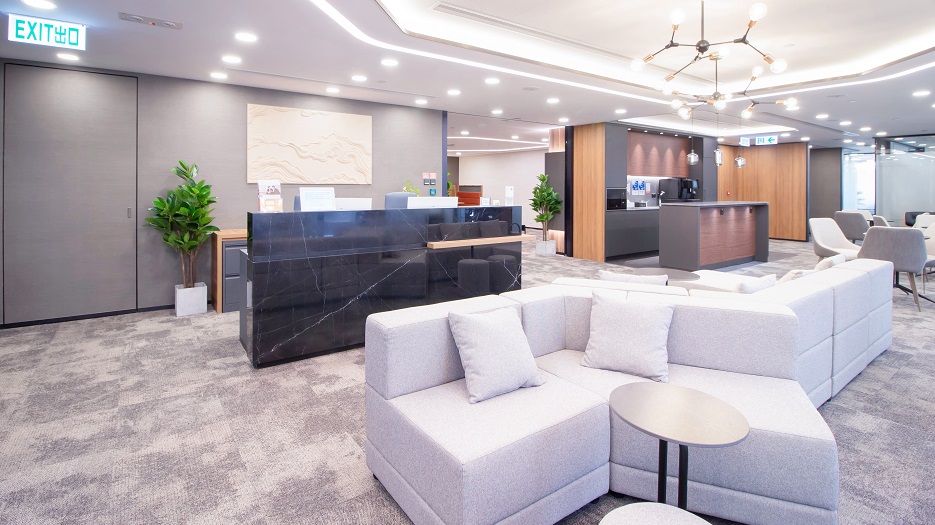Published: 02 Jan 2024
Moving Waves – GenZ in Flexible Workspace

“What’s going on is that work is being disconnected from jobs, and jobs and work are being disconnected from companies, which are increasingly becoming platforms.” - Thomas Friedman
More than one-third of the world’s population now comprises of Gen-Z, which describes those born between 1997 and 2012. As one of the most diverse groups with different behavioral tendencies in retail consumption and technology, as well as in politics and culture, which are radically different than Millennials or the more conservative baby-boomers. As baby-boomers retire from the workforce, these vacancies are replaced by Gen-Z, who are now starting to reach the employment phase of their life. This generation holds a unique worldview and perspective on careers and what it means to be successful.
Naturally, the introduction of these new structural trends will reshape the labor market with a plethora of implications. For instance, as technological advancement and automation continues to eliminate the more mundane and manual jobs, resulting in a re-designing of job scopes and a more competitive environment for great talent, listed companies and employers in general are required to be innovative to attract, secure and generate a continuous pipeline of new and distinguished talents. It is therefore important to understand some of these driving forces and shifts that are transforming the workforce as Gen-Z will have a profound impact on the workplace as well as developments of the future workspace.
Evolution of Flexible Workspace
While Gen-Z will have a profound impact on the workplace as well as developments of the future workspace, the evolution of the flexible workspace coincides with the mentality and working style of Gen-Z, as well as their predecessors as flexible workspace adopts an agile approach to space that is underpinned by innovation and technology. In this article, we examine factors that have gone into shaping the worldview and behaviour of Gen Z towards work and how the flexible workspace provider has evolved to cater to the demands and work-related tendencies of this demographic. More specifically, how employers can future proof their assets optimisation (physical office space or serviced offices) or business and operational strategies in order to entice and seemliness assimilate Gen-Z into the workplace.

Characteristics of Gen-Z – Key Factors that Shaped their Worldview:
A meaningful understanding of what entry into the workplace connotates for this generational cohort requires a brief review of human history and environmental developments across the globe. It is worthwhile to note that Gen-Z are much more diverse in ethnicity and mindset in comparison to their predecessors. They have witnessed a world where knowledge and horizon are expanded on the world wide web. Increasingly, access to information is share and commercial transactions are completed at the click of a button. According to a recent survey by Deloitte, some of these staggering statistics will help us define and understand the worldly factors that have gone into shaping the behavioral patterns of Gen Z, including their core values and stance on the types of organisations or industries that they are more inclined to be attracted to.
Gen-Z are the Class of 2019. A generation ONE MILLION larger than Millennials
• “Birth year – Born after 1997.”
• “Graduation – Gen-Z graduated from Secondary School in 2019”.
• “Ethnicity – Nearly half (50%) of Gen-Z are non-Caucasian”.
• “Employment – Over half (54%) believe that their first employment opportunity will come via digital connections”.
• “Skillset – Over half (52%) are more confident in their Tech skill than Soft Skill”.
• “Gen Zers are self-drivers who deeply care about others, strive for a diverse community, and value flexibility, relevance, authenticity and non-hierarchical leadership”.
• “Technology – 100% Digitally native generation”.
Are Gen-Z Entrepreneurial or Risk-averse by Nature?
A more nuanced concept emerged as we explored the aforementioned and the environment in which this generation came of age. In contrast to their more conservative predecessors, Gen-Z appreciates sentiments such as work-life balance, work benefits and flexible work arrangements. Many of these work-related criteria define the flexible workspace as a preferred workplace solution. As demand for flexible offices evolve overtime, workplace strategies for corporate and business professionals have shifted considerably due to changing environmental factors including the increased prevalence of hybrid work arrangements and ultimately, the assimilation of a new work force. As a result, businesses are increasingly looking for flexible and sustainable workspaces that can accommodate the latest technology and support the well-being of their employees.

Gen-Z – A Global Citizen
Historically, emphasis is largely placed on the maximisation of corporate profits but with the establishment of Global ESG regulations, consisting of policies that impose sustainability standards, practices, and disclosure requirements on businesses has its implications. Gen-Z are generally more socially aware having bought up under this climate in social development. Implications will continue as the EU has recently adopted a proposal for the Corporate Sustainability Due Diligence Directive, which will affect businesses globally. Taken together, Gen-Z evaluates the potential of a company on its commitment to a broader set of societal challenges such as ethics, practices and social impact from the services and products that they offer.
The aforementioned attribute aligns seamlessly with the underlying principles of Compass Offices’ flexible workspace, its progressive model rests on a sustainable and inclusive approach to the physical and digital workspace, where it strives to incorporate the latest technologies or environmentally friendly approaches to the mounting of its business centres across the Asia Pacific. Compass Offices believes that the workplace should be seen as part of the ecosystem of co-creation, a quality space improving health and wellness where people can be together to connect and be creative in a sustainable manner that leaves the earth intact for many generations to come, a notion that appears to coincide with workspace attributes preferred by Gen-Z.
STEM Jobs – Diversity and Inclusion
Gen-Z are on track to be the most diverse generation to date, not only in traditional sense of the word in relation to race and gender, but one that speaks to orientation and self-identity. The Global Gender Gap Report 2022 constitutes a sobering read in this regard, closing the gap at just over 68% - it will take 132 years to reach full parity. Employers recruiting in STEM (Science, technology, engineering, and mathematics) or sectors that are traditionally gender-prone should seek avenues to promote gender-equality. At the board level, this calls for equal renumeration and equal board representation, a statistical figure that many listed companies are still lagging. At the micro -level, employers should be inclusive in realising the need to represent the full spectrum of the human conditions in their branding strategies for the future workplace.
The Future of the Workplace
More than one-third of the world’s population comprises of Gen-Zs as one of the most diverse groups to date. This generation holds a unique worldview and perspective on career developments, what it means to be successful as well as an inclination for flexibility in the workplace in comparison to its predecessors. These shifting paradigms are transforming the workforce as Gen-Z continues to have a profound impact on the workplace as well as developments of the future workspace. The new realities produced by these new forces and paradigms of change present us with complex questions to consider, particularly in areas of asset (office or physical workspace) optimisation and in ensuring a sustainable workforce for success.
About Compass Offices
Compass Offices is one of Asia Pacific’s fastest-growing providers of flexible workspaces for corporate and business professionals, growing startups, enterprise teams and international conglomerates.
Since 2009, our global support teams have been dedicated to providing our clients with an innovative bespoke business ready workplace and professional services that facilitate growth in today’s changing risk environment.
We present a growing portfolio of over 50 locations across 10 cities, serving a network of over 20,000 clients. Our enterprise-grade IT infrastructure and communication solutions are designed to meet the opportunities of the modern workplace.
For further information, please visit www.compassoffices.com
Find Out the Office Space Best for You
Hong Kong | Melbourne | Sydney | Tokyo | Osaka | Singapore | Manila | Kuala Lumpur | Shanghai | Ho Chi Minh City

